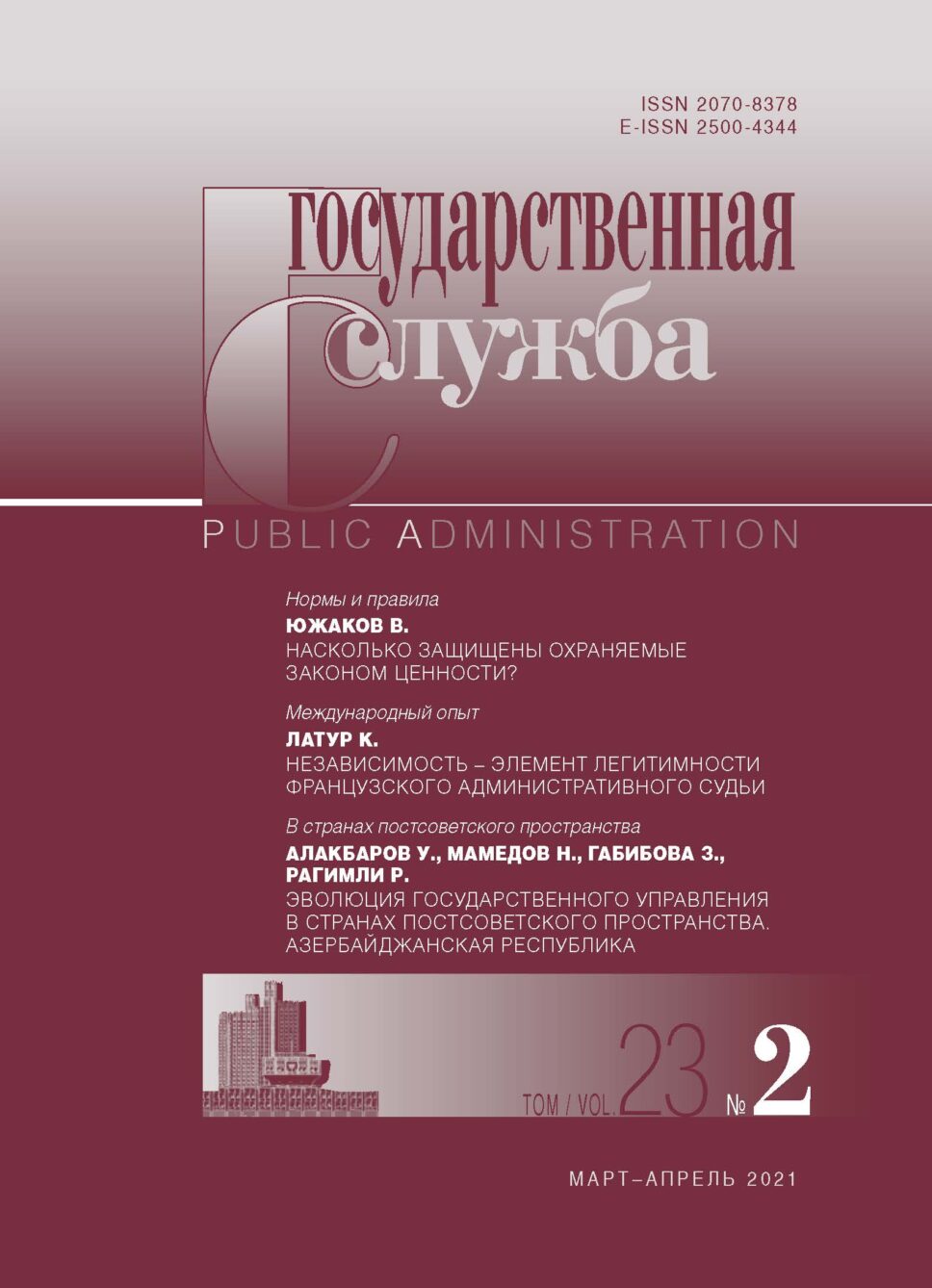Recommended link to article:
MARINA I. PANKRATOVAа
аMinistry of Economic Development of the Russian Federation
DOI: 10.22394/2070-8378-2021-23-2-88-96
Abstract:
The subject of the study is education in the field of culture and art, its purpose is to assess public policy in the field of art education. The article analyzes the reasons for the appearance in the film industry of specialists with a low level of training. The study was based on the regulatory legal acts of the Ministry of Education and Science of Russia, data from Federal State Statistics Service, portals of the Ministry of Education and Science of Russia: ‘Monitoring the employment of graduates’ and ‘How to enter the UNIVERSITY correctly’. During the study, a hypothesis was formulated on the trend of an increase in the training of specialists in creative specialties in non-core educational organizations. The hypothesis was tested on the basis of a regressive analysis of the distribution of admission quotas to higher education organizations, regardless of their departmental affiliation, and the construction of a linear regression. The article applies methods based on the establishment of an internal relationship of phenomena, their mathematical description. According to the analysis, the assessment of the quality of education in the field of culture and art should be determined not only by conducting online exams and testing graduates, and by questioning employers about the quality of their professional training. The author suggests measures aimed at changing the existing methodology for distributing admission quotas for creative specialties to educational organizations of higher education of the Ministry of Culture of Russia and other universities for which creative specialties are not specialized, and tightening requirements for material, technical and personnel support of a full-fledged educational process.
Keywords:
cinematography, film education, admission quotas, film cluster
Received:
March 25, 2020
References:
Berezin O. Regional technological film clusters. In: Sinemaskop. Informatsionnoe izdanie kompanii ‘Nevafilm’. 2019. № 2. In Russian
Burak I.D., Razumova T.O. Additional professional education as a tool for implementing the concept of lifelong learning. In: Nauchnye issledovaniya ekonomicheskogo fakulteta. Elektronnyi zhurnal. 2019. Vol. 11. № 1. P. 30–48. In Russian
Gerashchenkova T.M., Gerashchenkova S.M. On the specifics of cluster interaction between universities and enterprises of the real sector of the economy. In: Izvestiya Tul’skogo gosudarstvennogo universiteta. Ekonomicheskie i yuridicheskie nauki. 2016. № 3–1. P. 328–334. In Russian
Goryunova G.N. Ekonomika kinematografii [Economics of cinematography]. M.: Iskusstvo, 1975. 359 p. In Russian
Gurtov V.A., Sigova S.V. Student contingent and state guarantees. In: Vysshee obrazovanie v Rossii. 2006. № 6. P. 22–25. In Russian
Rabochaya sila, zanyatost’ i bezrabotitsa v Rossii (po rezul’tatam vyborochnykh obsledovanii rabochei sily) 2018: Statisticheskii sbornik [Labor force, employment, and unemployment in Russia (based on the results of sample labor force surveys) 2018: Statistical collection]. M.: Rosstat, 2018. 142 p. In Russian
Razumova T.O., Zolotina O.A. Features of employment of graduates in the Russian labor market. In: Vestnik Moskovskogo Universiteta. Seriya 6: Ekonomika. 2019. № 2. P. 138–157. In Russian
Articles in Open Access mode are published under the Creative Commons Attribution 4.0 International (CC BY) license.

